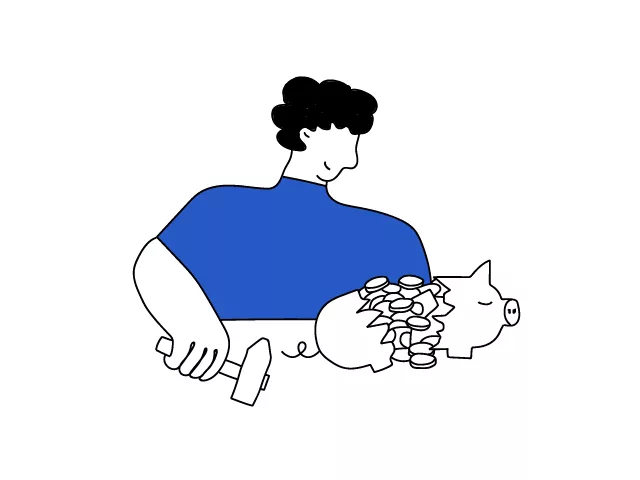Renting With No Income But Savings Calculator

Can I Rent If I don't Have Monthly Income?
Qualifying for the financial requirements when renting can be a frustrating process. Let alone when you don’t have that “normal” 9-to-5. We can help you figure out how much money in the bank you need to show when renting an apartment or a room.
By inputting your current savings balance, the tool will use the 60x rent rule to determine a monthly housing budget and calculate the rent you can afford.
Monthly Rent
Renting With No Income FAQ
Renting with no income but savings is a viable option for those who have a significant amount of savings and can cover their living expenses while they look for a job or other opportunities.
Answer is Yes. Here’s what you’ll need in order to qualify as a June’s resident.
- Proof that your monthly income is 3x the monthly rent or proof that you have 60x the monthly fee in cash assets. You can prove cash assets by providing banking statements
- An above 650 credit score.
Although you do not have a job, there are several ways to demonstrate your financial capacity to pay rent and secure an apartment, such as:
Proof of income from other sources:
If you have income from sources such as freelance work, rental properties, or investments, you can show bank statements or tax returns as proof.
Co-signer or guarantor:
If you have someone who trusts your ability to pay rent and is willing to co-sign or guarantee the lease, that can be used as evidence of your financial ability.
Savings:
If you have savings, you can show bank statements as proof. This shows that you have the financial resources to pay rent, even if you don’t have a regular income.
Proof of employment offer:
If you have a job offer with a start date in the near future, you can provide a letter from the employer or a contract as proof of your future income.
Reference letters:
If you have a history of paying rent on time, you can ask previous landlords to write reference letters confirming your reliability as a tenant.
It’s important to keep in mind that the exact requirements for proving financial ability to pay rent may vary between landlords and states. Be prepared to provide additional information or documentation if requested.
The key to renting with savings is to have a solid financial plan in place and to be mindful of your spending habits. By carefully tracking your expenses and sticking to a budget, you can ensure that your savings last as long as you need them to.
However, it’s important to keep in mind that relying solely on savings can be risky and that unexpected expenses or a prolonged period of unemployment could put a strain on your finances. It’s always wise to have a backup plan in place, such as a co-signer or government assistance, just in case.
Some of your most frequently asked questions; answered and explained.